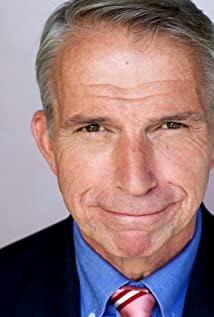The experience of "The King of the Circus" is exactly the same as that of the legend Barnum that it reflects. Critics averaged low ratings, while audiences expressed their love at the box office. Are art and entertainment really incompatible? What lessons does this conflict teach us?
The huge difference between the critics and audiences of "The Circus King" is an interesting phenomenon: only 55% of the media on Rotten Tomatoes gave a positive review, but 90% of the audience liked it; on metacritic, the critics Rated 48/100, but users gave it a 7.7/10. The general audience's love for "The King of the Circus" has created a dark horse at the box office that was not favored by others.
The experience of "The King of the Circus" is exactly the same as that of the legend Barnum that it reflects. Barnum is known as "the originator of the circus". His circus brought joy to many audiences, but it was also considered vulgar and inappropriate by critics of the year. Of course, the real Barnum in history is more vulgar than the movie shows, and deception and hype are his common methods.
Although "The King of the Circus" is based on real events, it is more like extracting the stories you want to use from real events and expressing the ideas you want to express. The idea is concealed under its flamboyant singing and dancing, and of course under its pale script.
Before I get to the idea, let's talk about the gorgeous song and dance and the pale script - which is where the opinions of those who liked the movie and those who didn't like it ended up. Objectively speaking, people on both sides have a point. The song and dance design of the movie is eye-catching, and when the atmosphere is at a climax, every pore is shocked; and the script of the movie is indeed very simple and routine, especially its biographical elements are severely compressed, and several key points in the life of the biography master are all. Pass by.
But the song, dance and script are not what I want to evaluate today. What I want to talk about today is the "evaluation" itself. I think that's one of the themes of the film, maybe call it a song-and-dance biopic.
The performance art created by Barnum in the film is very controversial, and people's evaluation of it is polarized (of course, the historical Barnum is even more controversial). For example, Barnum knew that people like to be curious, so he collected talented people everywhere, and used some of their physical defects to make money, which many people despised. But when he knocked on the closed door of General Tom Thumb and said that he had seen a general, Tom's face was not entirely doubtful, but hopeful.
At this time, I thought to myself: Is it a better choice for these people to be closed in a room for the rest of their lives?
Barnum says:
They'll laugh at you no matter what, just charge them some money.
This can be regarded as a kind of low-level people's wisdom.
This example is given to illustrate that differences in evaluation will always exist. The question is, how do you deal with it?
Barnum in "The King of the Circus", from humble beginnings, married a wife from high society. Although his wife loved him dearly, the class divide (specifically, his conflict with his father-in-law) still shaped Barnum's views on art. Although he started as a circus performer in his early years, he worked hard to pursue the recognition of the upper class in his heart. For this reason, he took the risk to invite "Swedish Nightingale" Jenny Lind to come to the United States and support her. However, Barnum was doomed to be out of touch with high society in his bones, his relationship with Linde broke down and he went bankrupt, and this effort to gain high society recognition ended in disastrous failure. Here, the film makes a very bold falsification of historical facts-historically, Barnum made a fortune because of "Swedish Nightingale", and his bankruptcy was because he invested in a watch company in Connecticut but did not operate well. But the film combines two things into one in order to highlight its theme.
This theme was first addressed by Barnum's wife Charity, who persuaded Barnum before he failed:
You can't please everyone.
And James, a critic who has always been unaccustomed to Barnum's circus, further pointed out after the museum burned down:
I would never call your circus art...but you bring these people together, and you might call it "an orgy of humanity."
We see that the only time James applauds restrainedly in the whole film is at Linde's concert. Thus, he is indeed a rather critical art critic; but at the same time, it also possesses an enlightened heart that some self-proclaimed elites do not possess.
Whether it's Charity or James, they all express the same theme: one creator's work can't please everyone; and further, even if your work has no artistic value, it doesn't mean it doesn't exist meaning. Maybe it can't be passed down from generation to generation, but it can bring happiness to the people at that time, which is enough.
At the end of the movie, Barnum was infected by the happiness of these "weird people" who he had brought in for the purpose of making money, and saw the meaning of his "unpopular" circus. So I understand:
The highest art is to make people happy.
The noblest art is to make others happy.
"The King of the Circus" uses Barnum's controversy, and even the polarized evaluation it faced after its release, to give us some tips on artistic evaluation in addition to top-notch singing and dancing.
Any film—including those not considered art—has its own strengths and weaknesses, and everyone has a steelyard in their heart to measure those strengths and weaknesses.
You like to look at light and shadow composition, no problem; you like to watch philosophical speculation, no problem; you like to watch Old Masters, no problem.
On the other hand, you like to watch blood and violence, no problem; you like to watch singing and dancing, no problem; you like to watch handsome guys and beauties, no problem.
"The King of the Circus" seems like an inspirational film because Barnum's wife keeps telling him: Live your life.
Everyone wants to live their own life and live their own uniqueness. Therefore, the premise of living out oneself is to respect others.
View more about The Greatest Showman reviews











